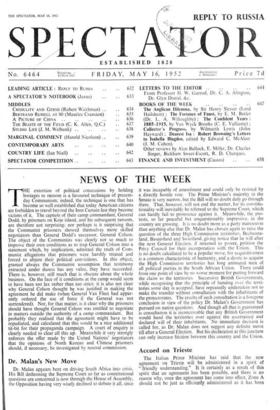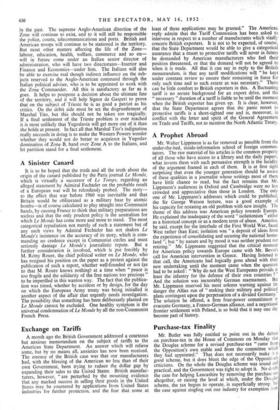Accord on Trieste
The Italian Prime Minister has said that the new agreement on Trieste will be administered in a spirit of "friendly understanding." It is certainly as a result of this spirit that an agreement has been possible, and there is no reason why, once the agreement has come into effect, Zone A should not be just as efficiently administered as it has been in the past. The supreme Anglo-American direction of the Zone will continue to exist, and to it will still be responsible the police, courts, telecommunications and ports. British and American troops will continue to be stationed in the territory. But most other matters affecting the life of the Zone— labour, education, health, welfare, commerce and so on— will in future come under an Italian senior director of administration, who will have two directorates—Interior and Finance and Economics—under him. The Italians will also be able to exercise real though indirect influence on the sub- jects reserved to the Anglo-American command through the Italian political adviser, who is to be appointed to work with the Zone Commander. All this is satisfactory as far as it goes. It helps to postpone a decision about the ultimate fate of the territory, and it will help Signor de Gasperi to prove that on the subject of Trieste be is as good a patriot as his critics. On the debit side must be set the disgruntlement of Marshal Tito, but this should not be taken too tragically. If a final settlement of the Trieste problem is ever reached it is most unlikely that Yugoslavia will get more out of it than she holds at present. In fact all that Marshal Tito's indignation really succeeds in doing is to make the Western Powers wonder whether they would not do better to acquiesce in Yugoslav domination of Zone B, hand over Zone A to the Italians, and let partition stand for a final settlement.



































